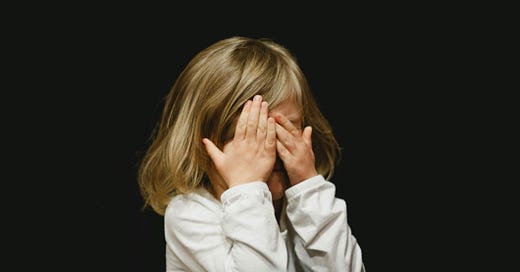Guilt is a feeling many of us carry constantly. It appears in small moments—hesitation to rest, discomfort buying for ourselves, unease saying "no." We usually see it as proof we've done something wrong. But what if guilt often isn't a sign of actual harm, but rather misplaced responsibility or learned conditioning?
My Own Awakening
I felt this disconnect acutely one week. Exhausted, I declined a friend's invitation, and a heavy wave of guilt hit me. Was I selfish? Disappointing? The feeling was intense, but didn't match the reality. I realized the guilt came from my deep-seated belief that being "good" meant always putting others first – a learned rule, not a moral failing. My guilt was a conditioned response.
Photo by Caleb Woods on Unsplash
The Two Faces of Guilt: True vs. Conditioned
It's vital to distinguish:
True Guilt: This arises when we genuinely cause harm to another person or violate our own fundamental ethical values in a way that negatively impacts someone. It's specific, proportional to the harm, and serves a clear, purposeful function: it nudges us towards repair, apology, restoring integrity, and realigning with our core values.
Example: Lying intentionally hurts a friend; true guilt prompts apology and amends.
Conditioned Guilt: This guilt arises from violating expectations, norms, or irrational internalized rules about how you should be, often when you haven't caused actual harm. It appears when setting boundaries, practicing self-care, or making choices that differ from expectations. Conditioned guilt feels diffuse, disproportionate, persistent, and unproductive.
Example 1: Feeling intensely guilty for declining a request for help when you're overloaded, even if they found help elsewhere. (Violated internalized rule about always being available; no actual harm).
Example 2: Feeling guilty enjoying something nice you bought for yourself, worrying about being frivolous or judged. (Violated learned beliefs about self-worth/spending; no harm).
Freedom and Unlearning
Understanding the difference between true and conditioned guilt is liberating. Your worth isn't tied to fulfilling every expectation. Since conditioned guilt is learned, not innate, you can question and release it. Start with awareness: ask if the guilt stems from harm or a learned rule. Challenge old beliefs and practice prioritizing your true needs.
You weren't born guilty. You were taught. And you absolutely can unlearn it.
If you enjoyed this piece, a quick tap on the heart icon would mean a lot. I’d also love to hear your thoughts in the comments—connecting with readers is truly the best part of this journey.
And if you found this helpful, feel free to share it with your friends and family. I’d be so grateful!❤️❤️❤️




